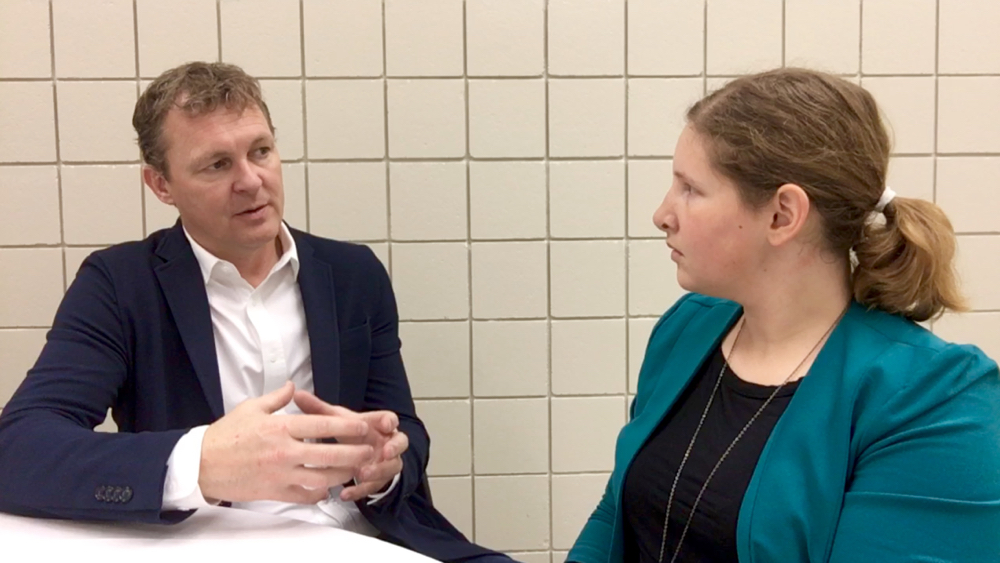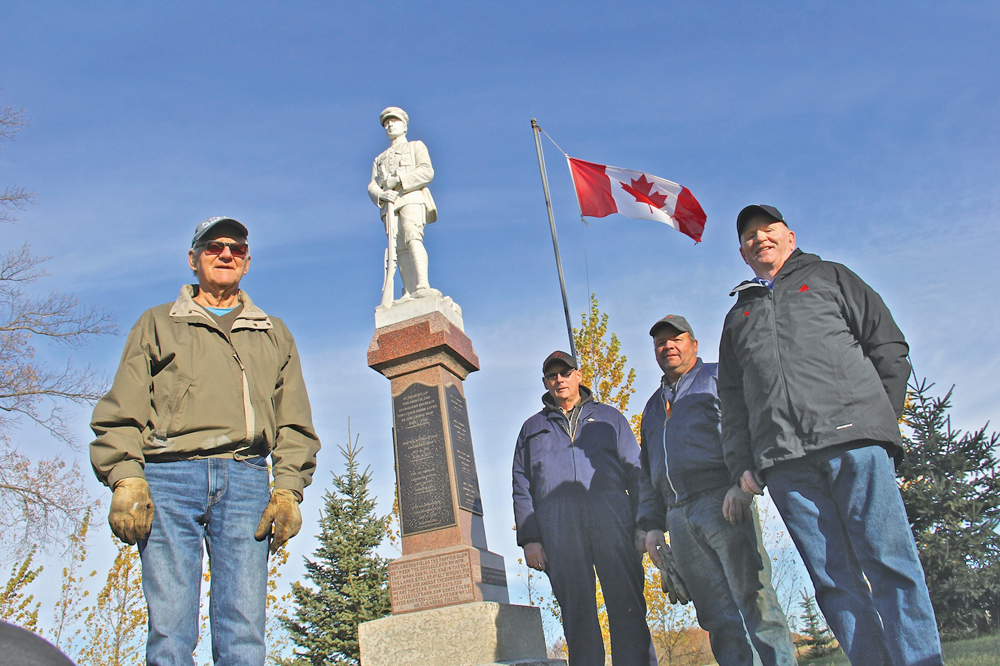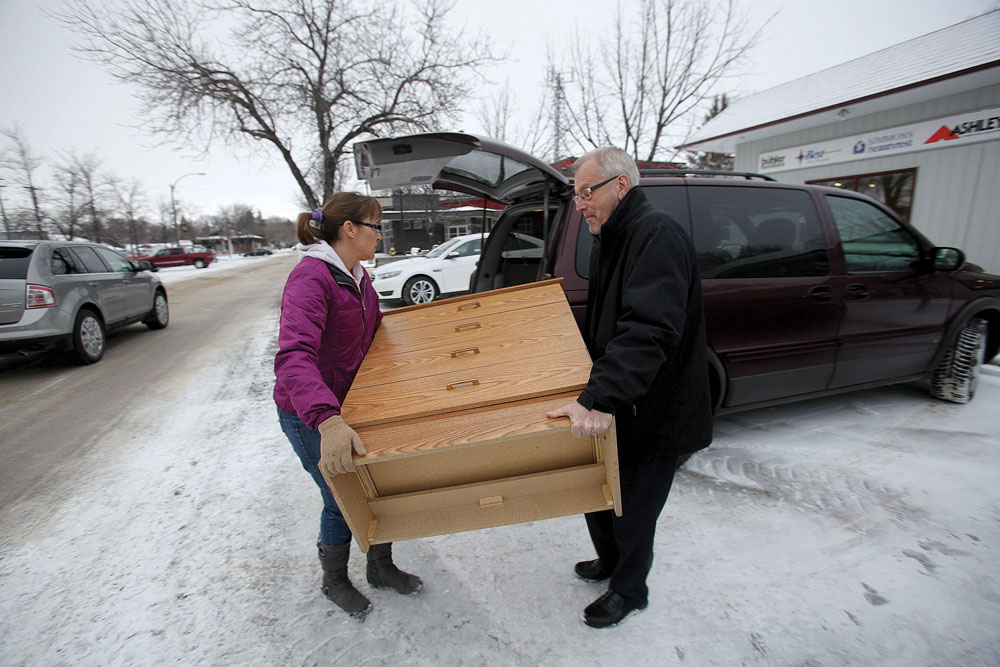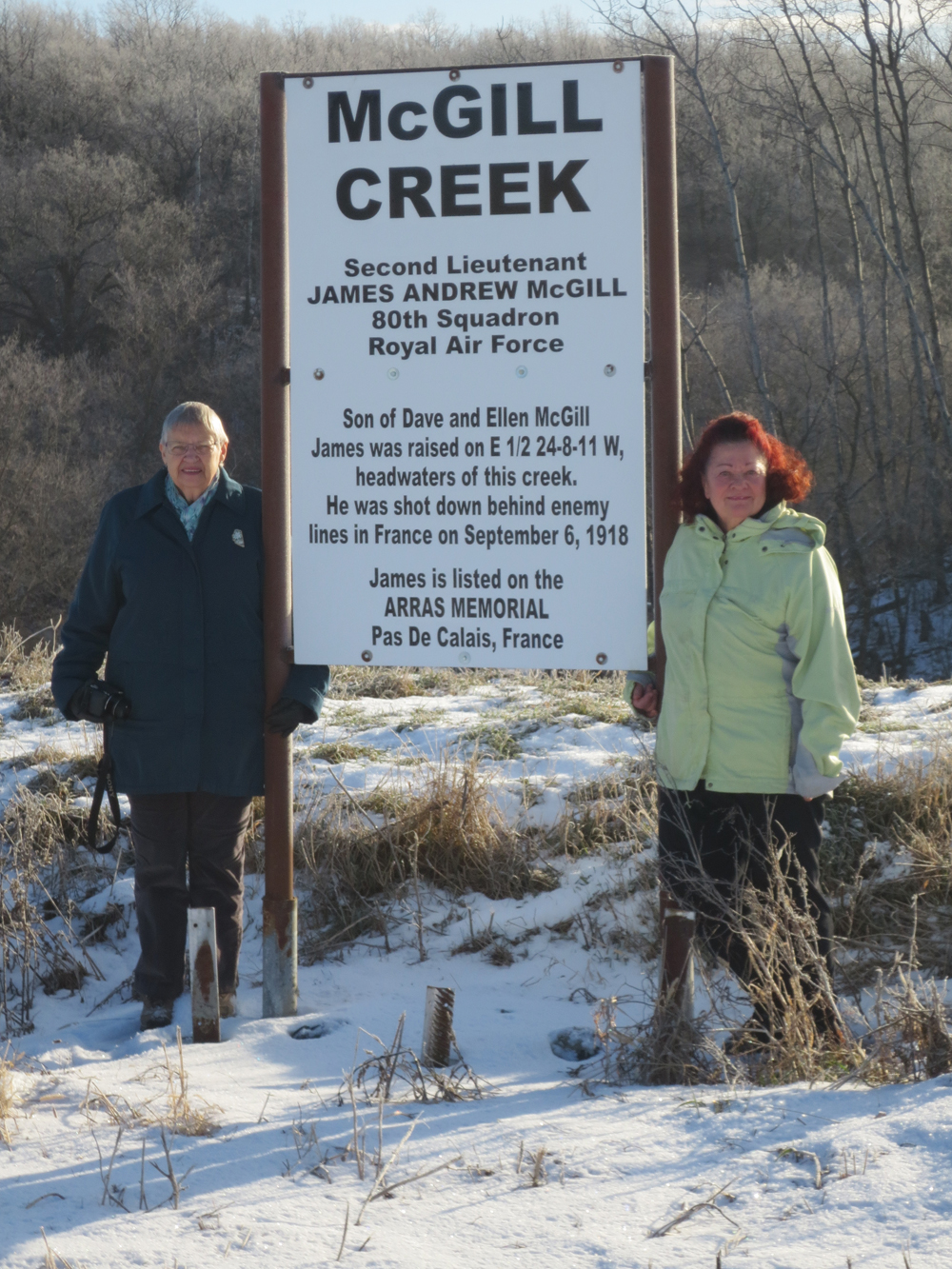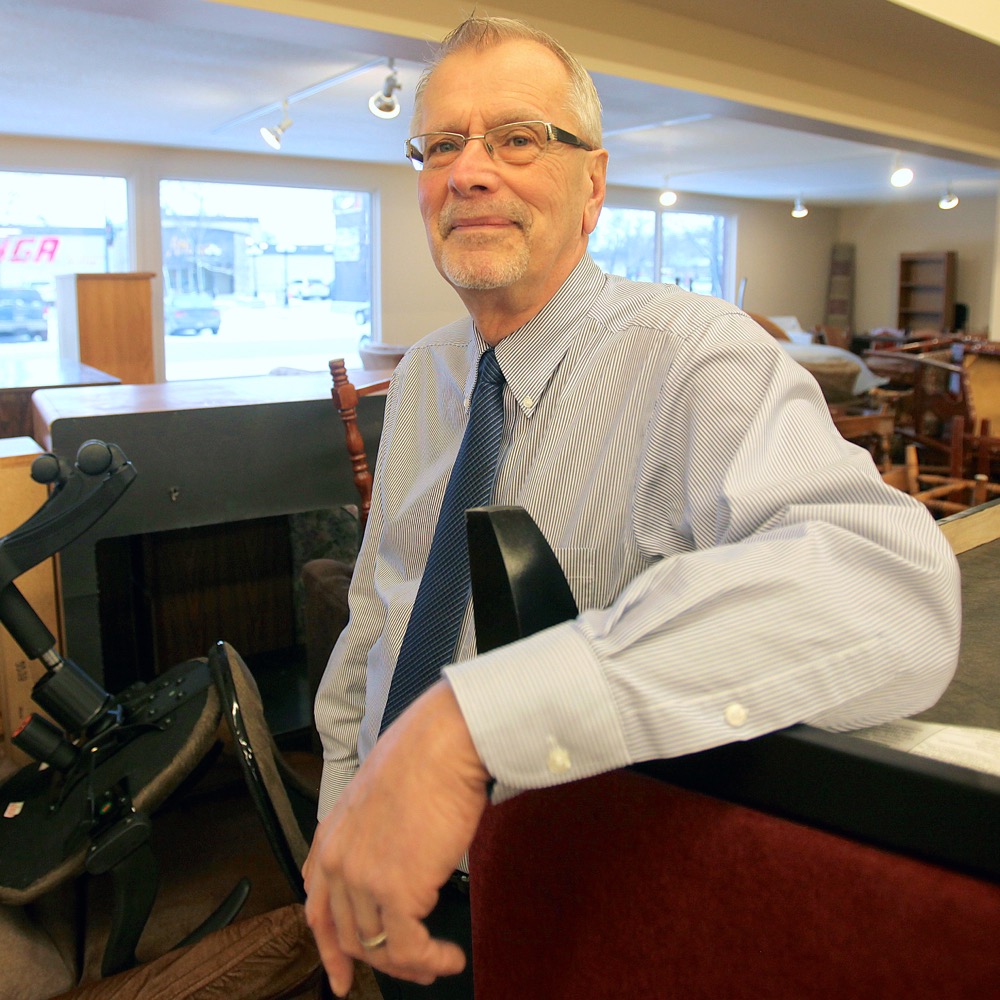As the Daas family makes their way down the escalator at Winnipeg’s James Richardson International Airport, you’d be forgiven for thinking that rock stars or a reality TV clan had entered the building.
Television crews jockey with kids holding handmade signs, while well-wishers and volunteers push in to hand bouquets of flowers and gifts to the nine Syrian refugees turned permanent residents, as they attempt to collect the scant baggage connecting them to the home that war has forced them to leave behind.
But the journey isn’t quite over yet, because the Daas family won’t be settling in Winnipeg. The Daas family is headed for Altona.

“There will be a total of 45 people coming,” said a smiling Ray Loewen, head of Altona’s Build a Village organization, which has sponsored five Syrian refugee families.
For weeks, the group has been stockpiling stoves, fridges, beds, clothes, dishes and other household goods at an ad hoc donation depot, all the while waiting on pins and needles for the phone call letting them know that the families are on the way.
“But that has always been part of this that comes together very nicely and this time is no exception,” said Loewen. The difficult part is finding houses in which to put everything, especially when the families are large ones.
“It makes for an interesting challenge… especially in a small community, because there are only so many rental units available,” he said. It’s a feat that was all the more challenging in light of the fact Build a Village only had a few days’ notice to sign five leases. Usually sponsors have a few weeks to prepare for the arrival of refugees. But not so this time.
Sponsoring families also takes a significant amount of fundraising. The federal government estimates it requires roughly $25,000 to sponsor a family of four, more for larger families.
But it’s not the first time that Loewen and the Build a Village team have faced this challenge head on. In partnership with Citizenship and Immigration Canada, and the Mennonite Central Committee, the grassroots charity has already brought 25 refugee families from across the world to Altona.
Doaa Abukhousa’s family came to Altona from Iraq nearly six years ago.

“It was hard, I’m going to be honest with you, the first year here was very hard, yes. We came from an Arab world, I don’t want to say country because of the situation, but we came from this Arab world to Canada, and then straight to Altona,” said the 18-year-old. “What helped us here, what helped me, is that the people here are so kind… it doesn’t matter how you dress, or how you talk, or if you even know any English, the people here, they understand.”
Paying it forward
Today Abukhousa is paying that kindness forward by volunteering with Build a Village and Regional Connections, which provides immigration and settlement services in south-central Manitoba. She has taught newcomers computer literacy and helps provide childcare so mothers can attend English classes.
Having recently finished high school, she plans to take six months off for volunteer work.
“When I decided to do that, I didn’t even know the Syrian families were coming,” she said. “This timing is good.”

Altona is not alone in its efforts to bring refugees from Syria and other countries to rural Manitoba. Communities across the province are pulling together to sponsor families that have lost their homes to war and upheaval.
Before long, refugees will be calling places like Carman, Austin, Dauphin, Cartwright, Killarney, Carberry, Virden, Russell, Grandview, Portage la Prairie, Riverton and Steinbach home.
In Winkler, Southern Potato, Green Valley Equipment, Kroeker Farms, and Emmanuel Mennonite Church, have partnered with the federal government and the Mennonite Central Committee to sponsor two families from Burma — otherwise known as Myanmar — as well as a single woman currently living in an Ethiopian refugee camp.
Ryan Toews, general manager of Green Valley Equipment, will host one of the families. The role includes guiding them as they find doctors and schools, set up bank accounts, learn English and generally settle into life in Canada.

“It’s a big responsibility,” said Toews, but he already knows the rewards that go with helping refugees make a new life. As a child, his parents hosted a Vietnamese refugee family that their church sponsored.
“We got to know them quite well over the years,” he said. “It was a big adjustment for them and for us, but they’ve become part of my family. They are still at all of our Christmas gatherings and they are as much a brother and sister to me as my own family is.”
Like family
Laurie Dyck, who is co-ordinating the effort in Winkler, said they are in the process of gathering furnishings and nailing down housing for families expected to arrive sometime before the end of next March.

“We want them to be supported… to make this as positive as we can,” she said, adding that there has been an “outpouring of support” from the community so far.
A little farther to the east, Dayspring Fellowship Church is taking a different approach to housing refugees — the congregation plans to build new houses.
“There’s people in need, who can’t stay where they’re at, and this is about looking at what we have to offer,” said Pastor Earl Toews, pointing to the congregation’s decision to subdivide the church’s five-acre Ste. Anne property to build two single family homes and a duplex.
And yet for many people, rural communities fly under the radar when it comes to resettling refugees. Bequie Lake, director of the Manitoba Immigrant and Refugee Settlement Sector Association, said some people assume incorrectly that only large urban centres can meet newcomer needs.
Read Also
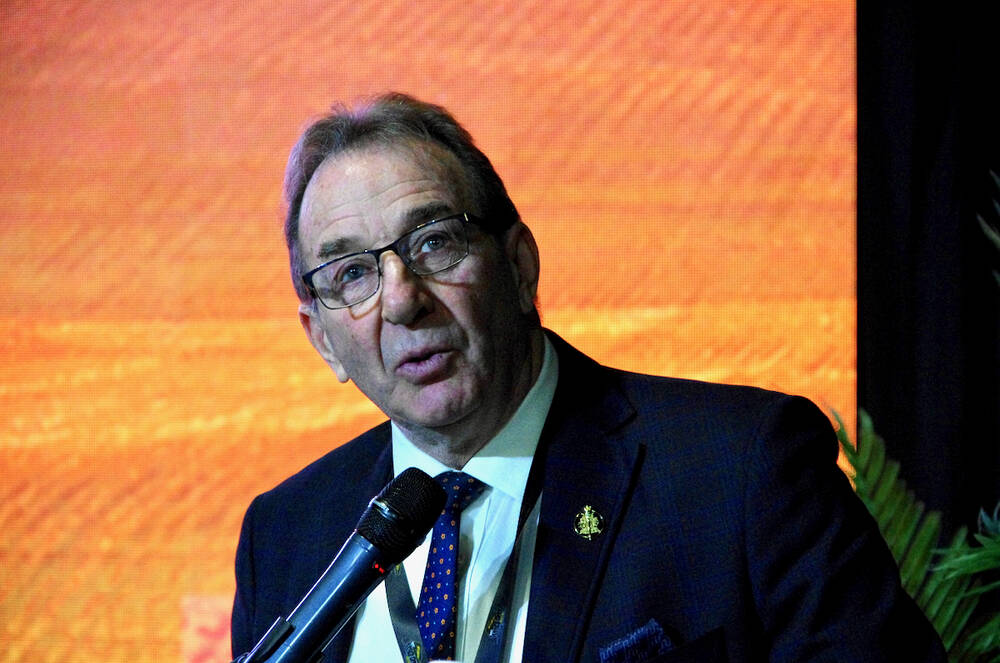
AgriStability enrolment deadline extended
The deadline for Manitoba farmers to enroll in the AgriStability business risk management program has been extended by three months agriculture minister Ron Kostyshyn announced on Friday.
“One thing about refugee populations is that they are enormously diverse, so just like the Canadian population there are people who are from smaller communities, who feel very at home in a small community,” she said. There are already extensive services established in rural Manitoba when it comes to meeting newcomers’ needs.
At the risk of sounding cliché, Ryan Toews offered that smaller centres really do have that “sense of community” that helps people feel at home.
Loewen agreed.
“While there might be some disadvantages to being in a small community, I think there are also some advantages,” he said. “One of the things we’re very fortunate to have here, is a very large and very dedicated group of volunteers who are willing to sort of walk with the newcomer families through their first year or two and then even longer in many cases, just to help them get settled into life in Canada and do all the things that need to happen when they get here.”
Long histories
Like Altona, many rural communities also have long histories of sponsoring refugees through community organizations, said Ben Rempel, assistant deputy minister with Manitoba’s Department of Labour and Immigration.
“They have been sponsoring refugees from Syria, from Africa, from all parts of the world,” he said. “So refugees are already going to communities like Morden and Altona, where there are services in place.”
Immigration and settlement providers also work to inform government-sponsored arrivals about smaller communities in the province, in an effort to find the best fit for them and their families, said Rempel.
And while not all refugees who first arrive in tiny villages and small towns will settle there permanently, Loewen said that’s all right too.
“We see our role as helping these families get settled into life here, to get a good start in Canada, and then if they choose to — for family reasons or other reasons — to move somewhere else in a year or two, or even five or 10, I mean we’re quite fine with that,” he said. “Our commitment is to make sure they get acclimatized to life in Canada. If they have family that ends up in Alberta, or Ontario, or wherever and want to join up with them, that’s great.”
That said, between one-third and half of all refugees who arrive in rural communities go on to make permanent lives there. The family the Toews family sponsored decades ago still calls Steinbach home.
And whether they stay for a few years or a lifetime, what newcomers add to rural communities is indelible.
“Every new family brings their own cultures, their own traditions, their own experiences, and as a community, we are just enriched any time that kind of diversity happens,” Loewen said.







